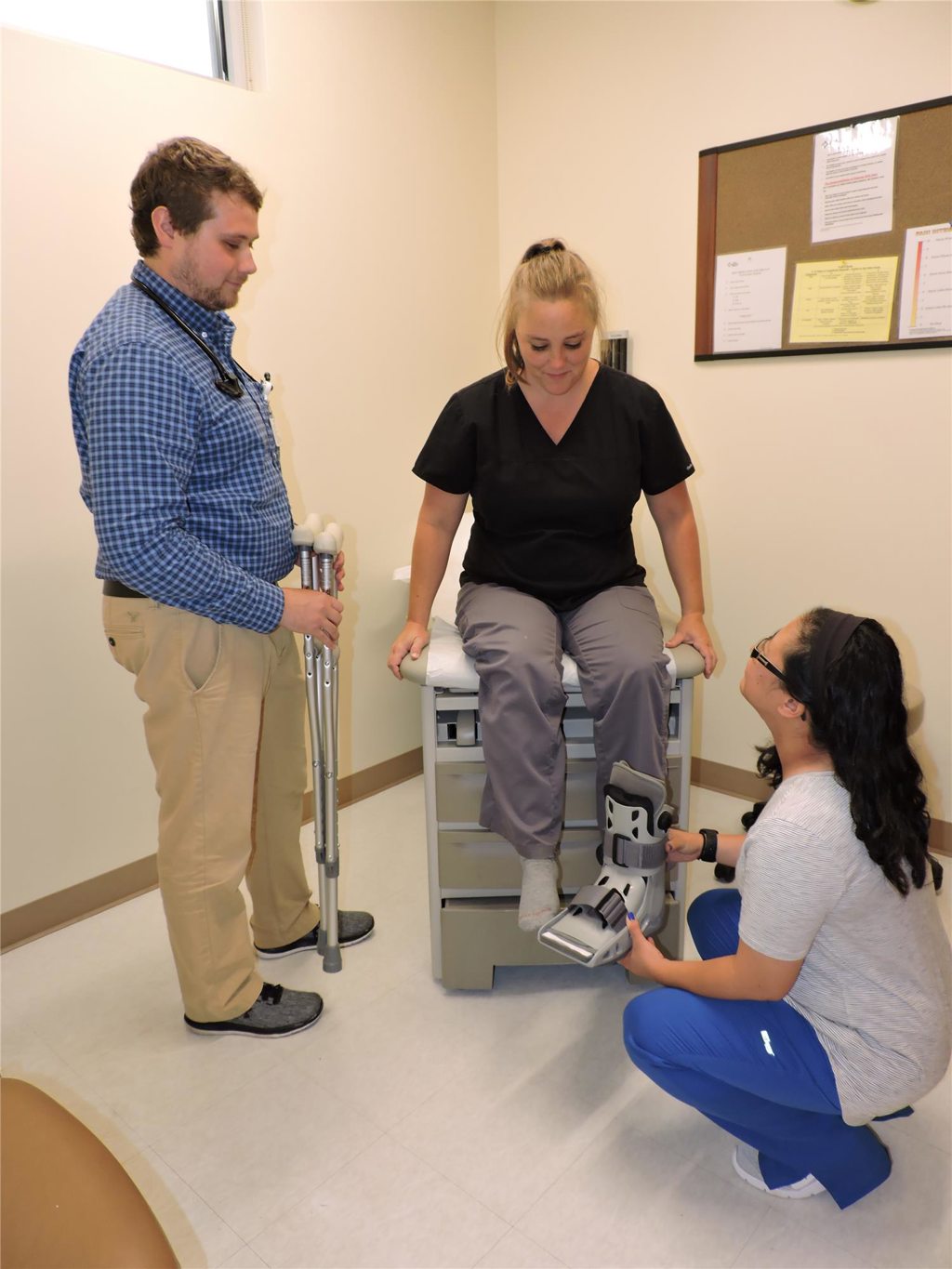
When to Visit the ED vs. QCare
Whether it’s a busy Saturday morning and your child spikes a high fever or you twist your ankle in the parking lot while getting groceries after work, illnesses and injuries most often occur unexpectedly. In these instances, you may be uncertain about where to go for care, especially if the symptoms seem severe and your regular primary care provider’s office is closed or you don’t have a primary care provider.
While an illness or injury may catch you off guard, you can be prepared to effectively seek treatment and save your life in a medical emergency by knowing the difference between QCare walk-in clinics and emergency care.
According to William Wittman, clinical director of QCare operations at Penn Highlands Healthcare, QCare is a great option for non-life-threatening illnesses or injuries. These facilities are known for their quick care for basic medical issues that would typically require an appointment with a primary care provider.
QCare accommodates walk-ins, which means appointments are never required. There is no need to call ahead. In addition, QCare facilities can treat these minor conditions outside of normal business hours, with most locations open until 8 p.m. Monday through Saturday and until 5 p.m. on Sunday.
When your primary care provider’s office isn’t an option or you don’t have an established primary care provider, a QCare walk-in clinic can treat the following conditions:
- Flu-like symptoms;
- Fever;
- Vomiting;
- Coughs, colds, sinus problems;
- Earaches;
- Sprains;
- Back pain;
- Rashes;
- Minor eye problems;
- Minor cuts and abrasions;
- Minor aches and pains;
- Bladder infections;
- Tick and insect bites.
Physicals for sports or for the Department of Transportation can also be done at most QCare locations, Wittman said.
“We are here when you need quick, convenient primary care,” Wittman said. “Not only do our QCare walk-in clinics provide our patients with even greater access to timely treatment, but they also help to alleviate our Emergency Departments across the system by caring for more minor illnesses and injuries and freeing up space for patients who are experiencing life-threatening conditions.”
Penn Highlands Healthcare has nine QCare walk-in clinics throughout the region, including in Brookville, Clearfield, two in DuBois, Emporium, Philipsburg, Punxsutawney, Ridgway and St. Marys.
However, if you or your loved one are experiencing a life-threatening condition, such as severe and sudden onset of chest pain or any symptoms associated with heart attack or stroke, Shaun Sheehan, DO, the health system’s Emergency Department medical director, said it’s important to call 9-1-1 or seek immediate medical attention at the nearest Emergency Department, or ED.
“In a true medical emergency, time is of the essence,” Sheehan said. “Therefore, it’s important to trust your instincts. If you’re intuition tells you it’s serious, don’t hesitate to get help immediately and go to the closest ED.”
There are full-service EDs located at each Penn Highlands Healthcare hospital.
“Our hospital EDs provide medical care at any time – 24 hours a day, seven days a week, 365 days a year,” Sheehan said. “However, unlike our QCare walk-in clinics, they are equipped and staffed for complex and critical needs, including life-threatening circumstances ranging from stroke and heart attack to injuries following a traumatic accident.”
QCare can perform x-rays and basic lab services, such as a rapid strep test, test for a urinary tract infection or a flu test, but they are not equipped for more involved imaging or lab procedures that are often required to properly diagnose and treat more serious medical emergencies, he said.
A patient who presents to QCare and requires more emergent treatment will be transferred to the nearest ED via ambulance. In addition, a patient who is not suffering from life-threatening symptoms will never be turned away from the ED.
According to Sheehan, you should go to the nearest ED if you experience any of the following:
- Chest pain;
- Stroke;
- Heart attack;
- Severe abdominal pain;
- Major head injuries;
- Major trauma;
- Compound fracture (bone visible);
- Shortness of breath;
- Ingestion of poisons;
- Seizures;
- Dizziness;
- Severe burns;
- Shock;
- Snake bites;
- Uncontrollable bleeding.
Following a visit to QCare or the ED, you may be advised to follow up with a primary care provider or specialist. If you need to follow up with a primary care provider but don’t have an established provider, the Penn Highlands Family Medicine “Continuity Clinic” offers appointments within days. In the Continuity Clinic, licensed residents see the patient and then a supervising Penn Highlands Healthcare physician also sees the patient. The Continuity Clinic is located in Suite 315 of the Medical Arts Building at Penn Highlands DuBois. Appointments are available Monday through Thursday and Friday mornings. To make an appointment, call 814-503-4305.
To learn more about QCare, visit www.phhealthcare.org/qcare, and to learn more about ED services, visit www.phhealthcare.org/ED.
